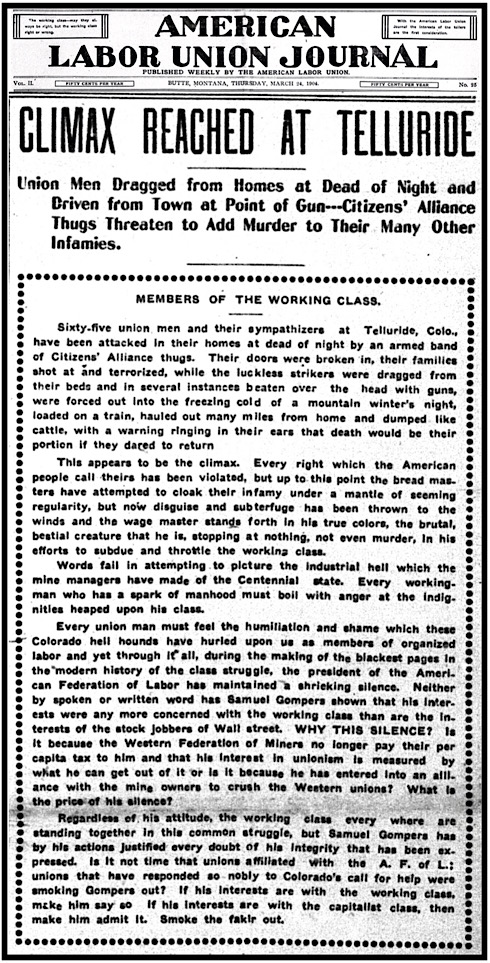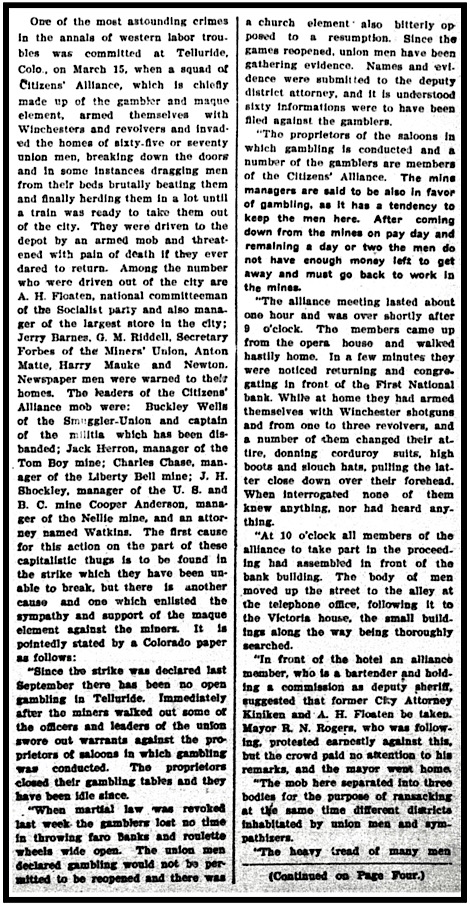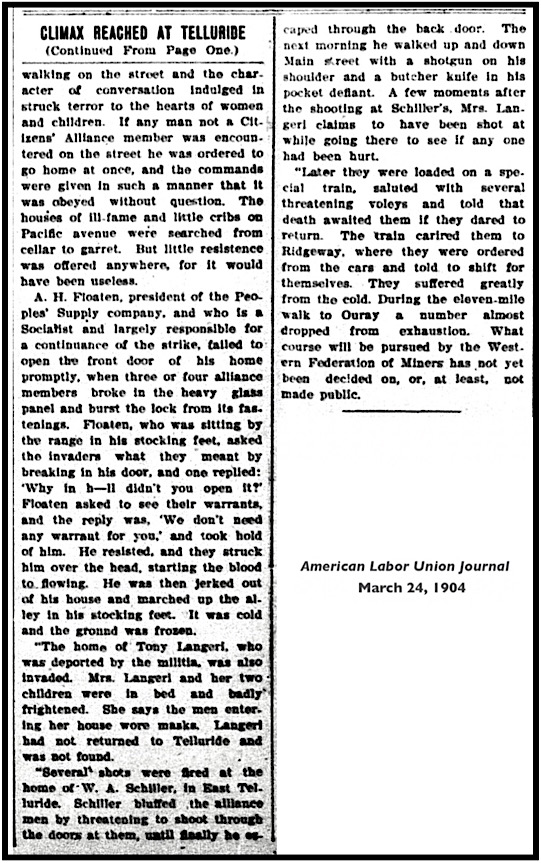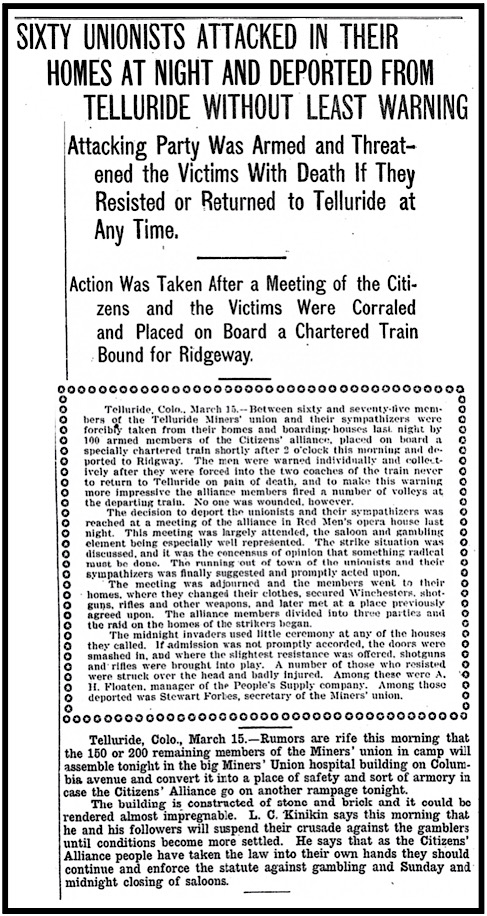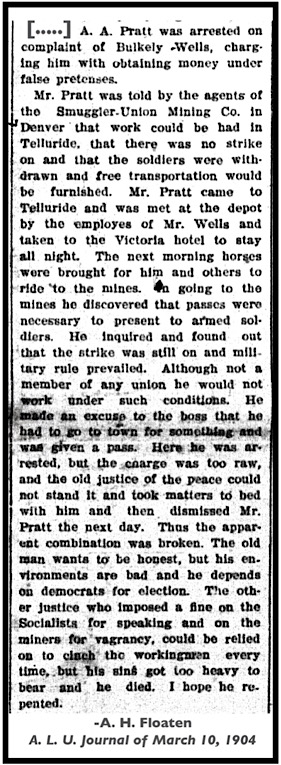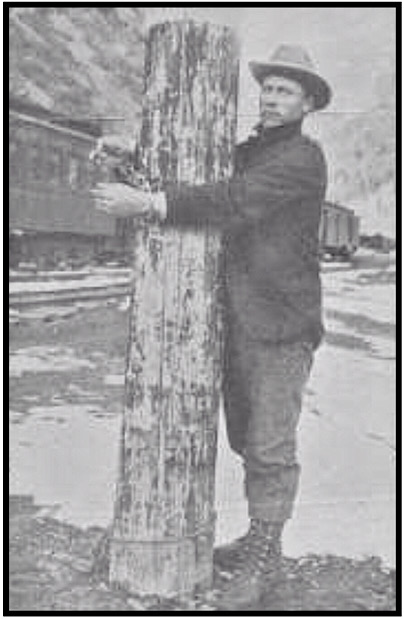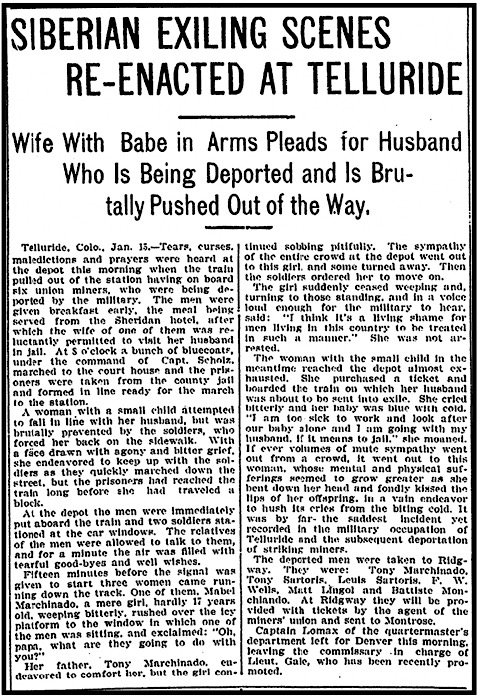Hellraisers Journal – Friday December 2, 1904
Telluride, Colorado – W. F. of M. Claims Victory as Strike Is Settled
The long and bravely fought Telluride Strike has been settled, and the Western Federation of Miners is claiming the victory. The strikers have endured military despotism, bullpens, vigilante attacks, deportations, and more during the past year. Nevertheless, they have endured to the end of the strike and that end comes with all of their demands being met in full.
From the Wichita Daily Eagle of December 1, 1904:
STRIKE IS SETTLED
———-Both Sides Are Rejoicing Over the Results
Telluride, Col., Nov. 30-Both mine owners and union miners are rejoicing over the action of the district miners’ association in session at Ouray ending the strike in this district which was called September 1, 1903. President Charles H. Moyer of the Western Federation of Miners, who was imprisoned here for several months last summer during military occupation of the camp, has made the following statement concerning the action of the miners’ association which was taken in accordance with is advice:
We have called the strike off because we take the position that the issues involved have been conceded by the mine owners and operators in the Telluride district, in that they recently posted notices to the effect that after December 1 they would grant an eight hour work day both for their mills and smelters and a minimum wage scale of $3. These demands were made over a year ago. We have had no conference with either the mine owners or mine operators and have no knowledge of what position they are going to take regarding the union. But the fact that they have granted our demands indicates that they will ask no questions and neither will we ask any questions, and I believe that within sixty days every mill at Telluride and Ophir will be running to their full capacity with the best workmen in the west employed.
During the past ten days the Telluride Citizens’ Alliance has deported six or eight of our men, but I do not believe the mine owners of Telluride had anything to do with this deportation. I believe the mine owners are inclined to treat us fairly and to meet us half way and I believe that public sentiment will demand that the Citizens’ Alliance keep out of the question entirely.
“What do you think will be the result of this action on the Cripple Creek situation?” Mr. Moyer was asked.
I believe a change will occur within sixty days that will be for the betterment of the Cripple Creek situation. The strike may not be settled entirely in that time, but I am sure a larger number of men will be at work than at present. During the past few days many union members, including some of the men deported by the military and business men last summer, have returned expecting the strike to be called off. Since the inauguration of the strike the mines and mills of the district have never been operated to their full capacity.


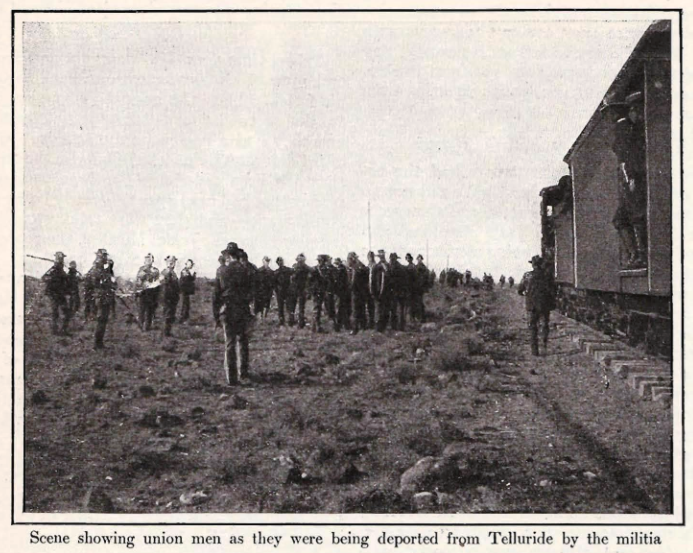
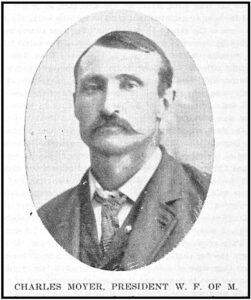
 —————
—————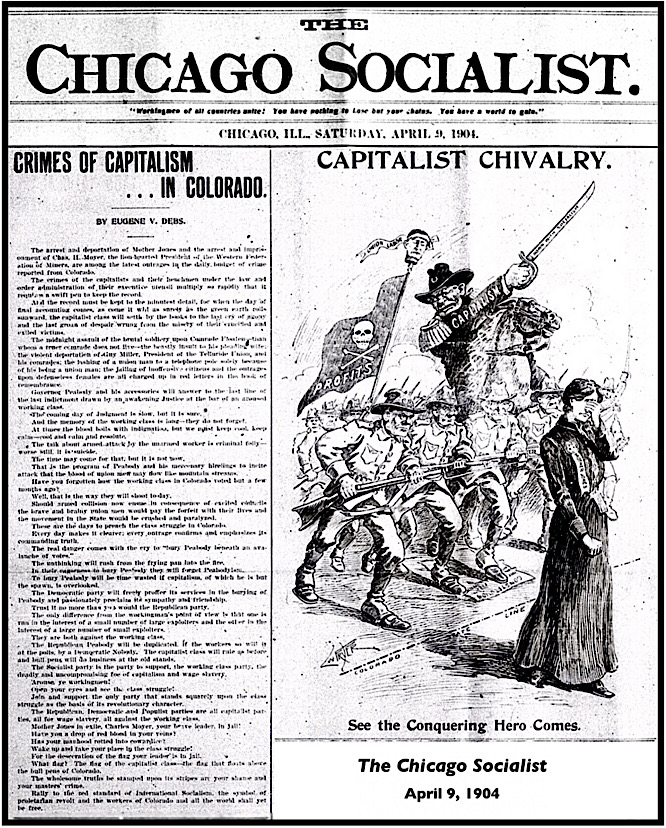
 —————
—————